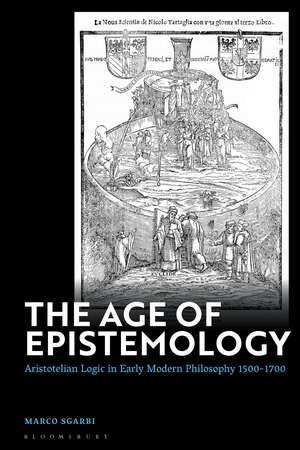The Age of Epistemology: Aristotelian Logic in Early Modern Philosophy 1500-1700
Autor Dr Marco Sgarbien Limba Engleză Hardback – 22 feb 2023
Preț: 541.61 lei
Preț vechi: 774.73 lei
-30% Nou
Puncte Express: 812
Preț estimativ în valută:
103.63€ • 108.51$ • 85.96£
103.63€ • 108.51$ • 85.96£
Carte tipărită la comandă
Livrare economică 10-24 aprilie
Preluare comenzi: 021 569.72.76
Specificații
ISBN-13: 9781350326545
ISBN-10: 1350326542
Pagini: 312
Dimensiuni: 156 x 234 x 25 mm
Greutate: 0.61 kg
Editura: Bloomsbury Publishing
Colecția Bloomsbury Academic
Locul publicării:London, United Kingdom
ISBN-10: 1350326542
Pagini: 312
Dimensiuni: 156 x 234 x 25 mm
Greutate: 0.61 kg
Editura: Bloomsbury Publishing
Colecția Bloomsbury Academic
Locul publicării:London, United Kingdom
Notă biografică
Marco Sgarbi is Professor of the History of Philosophy at Ca' Foscari University of Venice, Italy.
Cuprins
Sources and Abbreviations 1. Introduction 2. Averroists 3. Alexandrists 4. Francis Bacon 5. Galileo Galilei 6. Thomas Hobbes 7. René Descartes 8. Isaac Barrow 9. Robert Hooke 10. John Locke 11. Gottfried Wilhelm Leibniz 12. Isaac Newton 13. Conclusion NotesBibliographyIndex
Recenzii
In this thoroughly researched monograph, Sgarbi brings to light the ways in which the Aristotelian theory of scientific knowledge provided the framework for the development of Early Modern epistemology. Sgarbi's mastery of a very broad (and complex) array of historical sources, as well as of existing interpretations, is impressive. This book is destined to become a major reference work for this period and is an essential read to all those interested in the history of epistemology from the Renaissance to Newton.
